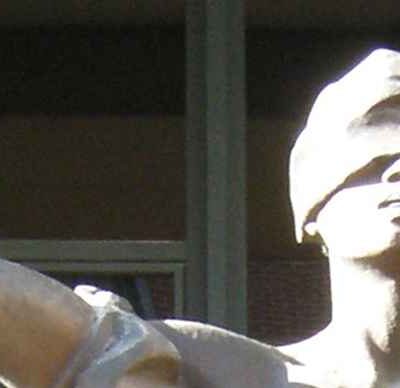News & Commentary
Duncan et al. v. State of New Hampshire
The Education Tax Credit Program allows businesses to reduce their tax liability by receiving an 85 percent tax credit in exchange for donations made to K-12 scholarship organizations which will pay for tuition at religious and other private schools. Since there is no state oversight of the schools receiving funds, religious schools will be able to use the donations for religious instruction, indoctrination, and religiously-based discrimination. The New Hampshire Constitution specifically provides that “no person shall ever be compelled to pay towards the support of the schools of any sect or denomination” and that “no money raised by taxation shall ever be granted or applied for the use of the schools or institutions of any religious sect or denomination.” The Complaint challenging the constitutionality of this Program can be found here.

Victory for Juvenile Justice! The NH Supreme Court Holds That Kids Shouldn't Be Treated As Adults At Sentencing
In a

State of New Hampshire v. Soto et al.
On May 12, 2014, the ACLU-NH filed a “friend-of-the court” brief on behalf of itself, six other organizations, and four professors at the University of New Hampshire School of Law asking the New Hampshire Supreme Court to end this state’s cruel and unusual practice of sentencing juveniles to life in prison without the possibility of parole (“JLWOP”).

Our Editorial In The Nashua Telegraph: "There’s No Law Against Asking For Help"
[Reprinted from the ACLU of New Hampshire's editorial in the Nashua Telegraph on August 22, 2014 entitled "There's No Law Against Asking For Help," authored by NHCLU staff attorney, Gilles Bissonnette]

State of New Hampshire v. Catherine Bailey et al.
The American Civil Liberties Union of New Hampshire (ACLU-NH) defended several protestors charged with violations of a curfew ordinance and criminal trespass when they set up a twenty-four hour occupation of Veteran’s Park in Manchester. The ACLU-NH filed a Motion to Dismiss the charges, arguing that the application of the curfew and trespass laws to the peaceful protest violated the Defendants’ rights to free speech, assembly, and revolution under the New Hampshire Constitution. After a full day hearing, the trial court denied the motion.

Our Op-Ed In The Union Leader: "You Should Be Able To Vote In New Hampshire If You Live Here And Call This State Home. Period."
* * *
We represent the plaintiffs in a lawsuit brought by the New Hampshire Civil Liberties Union challenging a controversial 2012 law which added language to the state’s voter registration form. The added language states that, in order to vote in New Hampshire, a person needs to establish “residency” here.
Last month, the Strafford County Superior Court issued an order striking down thi

We Just Filed An Amicus Brief Protecting Free Speech In New Hampshire
* * *
The City cannot obtain the injunctions it has requested under Part I, Article 22 and the First Amendment, or Part I, Article 8 of the New Hampshire Constitution. The City requested three injunctions: an access injunction and a videotaping injunction that both would place 30-foot floating buffer zones around all of the City’s current and future PEOs; and a speech injunction.
These floating buffer zones are unconstitutional. See Schenck v. Pro Choice Network of Western, N.Y., 519 U.S. 357, 375-380 (1997) (invalidating 15-foot floating buffer zone placed around individuals attempting to access or leave a physical locality under the First Amendment because it burdened substantially more speech than was necessary to further the state’s interests in “protecting public safety and order, promoting the free flow of traffic on streets and sidewalks, protecting property rights,
Stay Informed
Sign up to be the first to hear about how to take action.
By completing this form, I agree to receive occasional emails per the terms of the ACLU’s privacy statement.
By completing this form, I agree to receive occasional emails per the terms of the ACLU’s privacy statement.
